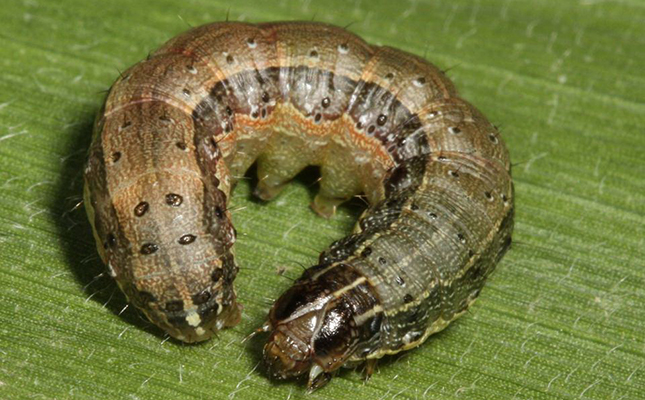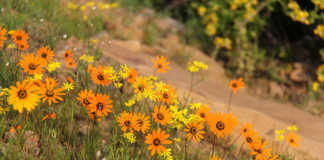
Photo: CropLife SA
With early rain experienced in different parts of the country, high infestation levels of the fall armyworm (FAW) can be expected. Farmers and community members were therefore encouraged to regularly scout for FAW during the 2020/2021 crop production season, particularly in younger plantings.
In a statement, the Department of Agriculture, Land Reform and Rural Development (agriculture department) urged grain farmers to take precautionary measures to control FAW.
READ Know your armyworm species
“The main concern with this pest is that it can rapidly develop resistance to agrochemicals, thus it is highly recommended to rotate the agricultural chemicals within the cropping season in accordance with the resistance group and mode of action,” the statement said.
Farmers could contact the nearest local agriculture centre for technical advice, and were also encouraged to scout for egg packs, leaf damage and caterpillars.
Farmers were advised to consult their agrochemical advisors to help identify caterpillars before applying pesticide, as they could be difficult to accurately identify.
Corné Louw, an economist at Grain SA, said different crops were at risk of FAW infestation, particularly non-genetically modified crops. These crops included certain maize cultivars, grain sorghum and soya bean.











